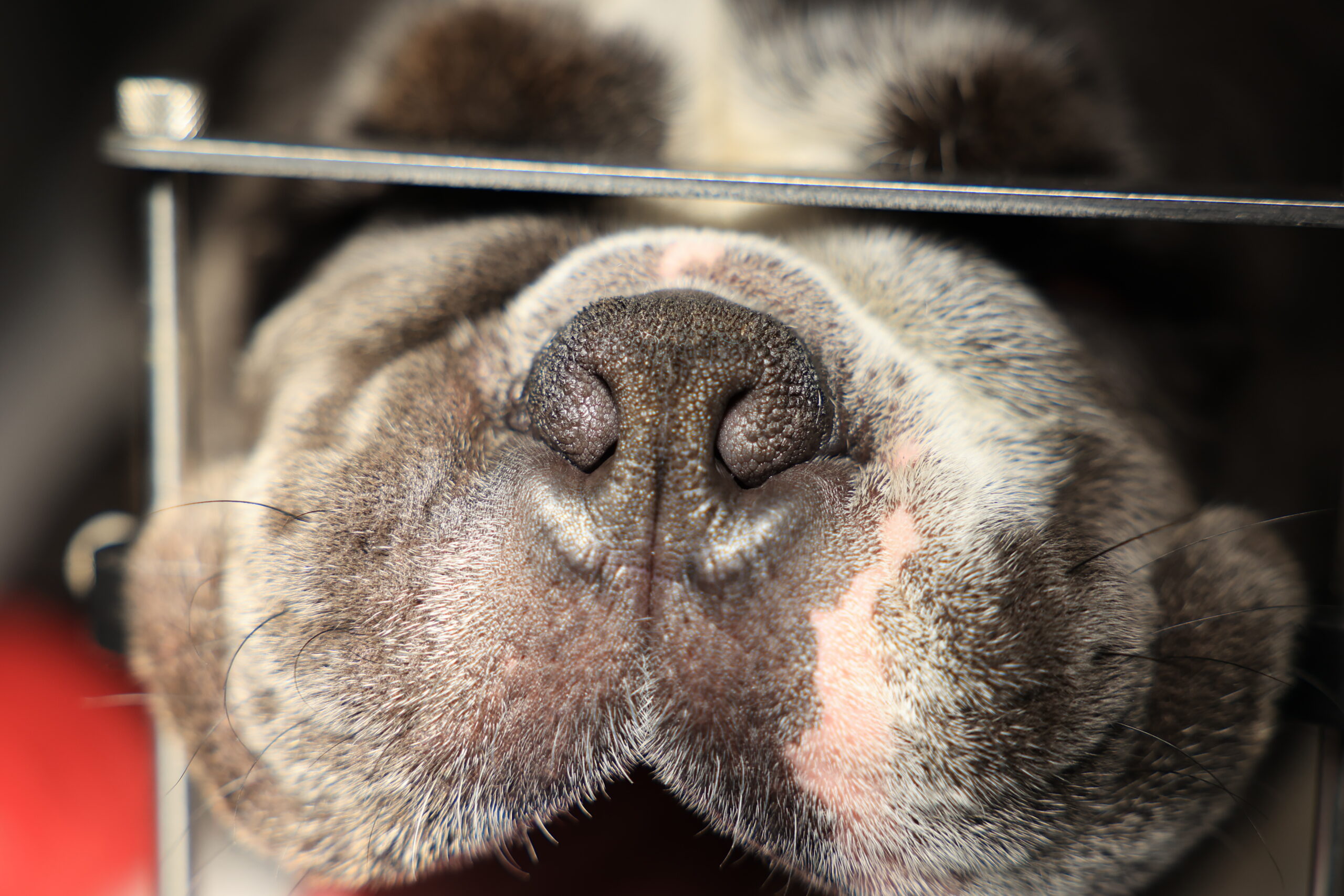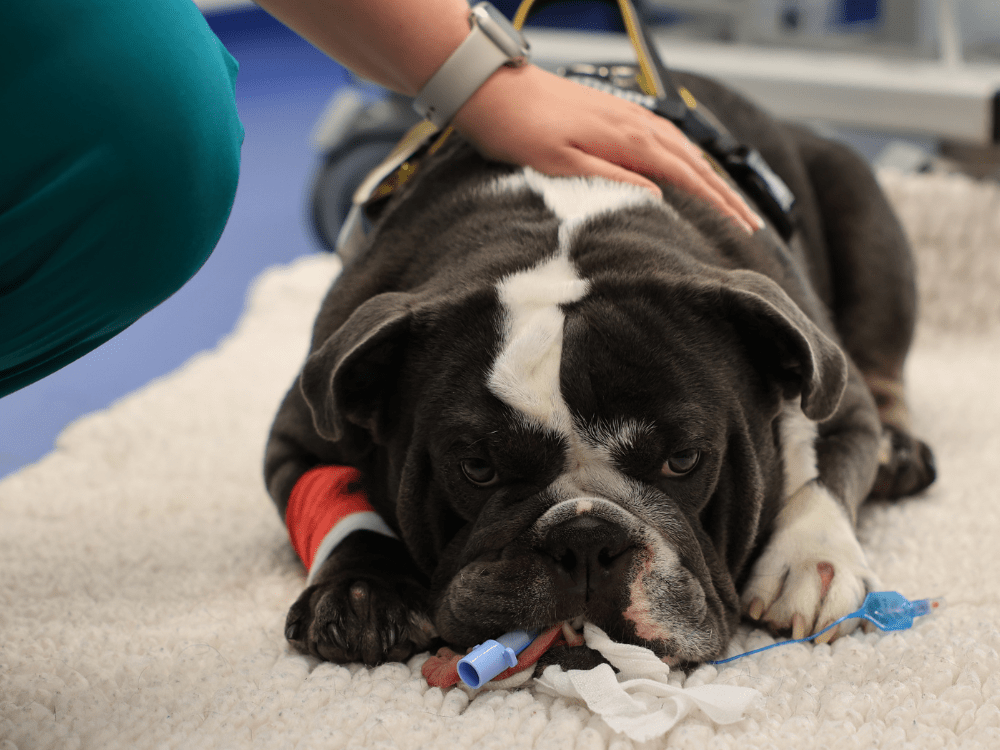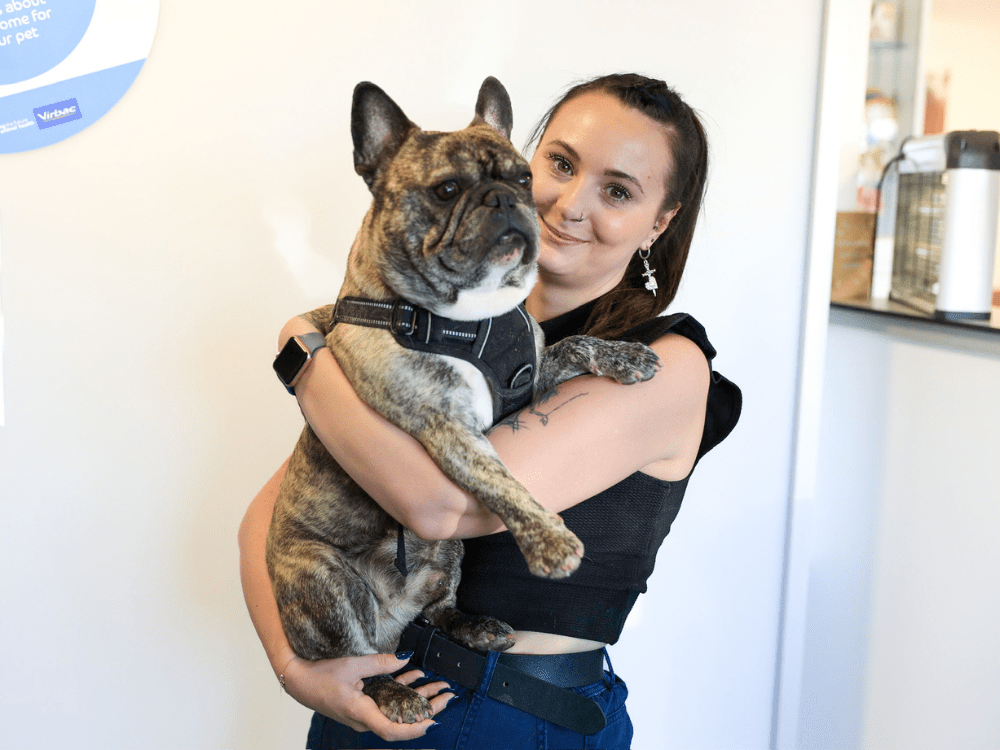BOAS Surgery
Brachycephalic Obstructive Airway Surgery

Boas
Brachycephalic Obstructive Airway Syndrome (BOAS) is a serious condition affecting brachycephalic (short-nosed) dog breeds like Pugs, Bulldogs, and French Bulldogs. These breeds have characteristic flattened faces that, while endearing, can lead to significant respiratory challenges. BOAS results from the abnormal anatomy of these breeds, including narrowed nostrils, elongated soft palates, and other structural issues that obstruct airflow.
Understanding BOAS
BOAS is a complex syndrome with multiple contributing factors:
- Stenotic Nares: Narrowed nostrils that restrict airflow.
- Elongated Soft Palate: The soft palate extends too far back, partially blocking the airway.
- Everted Laryngeal Saccules: The tissue within the airway is pulled into the trachea, further obstructing breathing.
- Hypoplastic Trachea: A smaller-than-normal trachea that reduces airflow.
What to expect from BOAS surgery?
Nares Widening
Surgical widening of the nostrils to improve airflow.
Soft Palate Resection
Trimming the elongated soft palate to prevent airway obstruction.
Laryngeal Sacculetomy
Removal of everted laryngeal saccules to open the airway.

FAQ
How successful is BOAS Surgery?
What is the prognosis of a dog suffering with BOAS?

Schedule a consultation:
If you believe your dog may benefit from BOAS surgery or have any concerns about their breathing, please contact us to schedule a consultation. Our team is here to help your pet breathe easier and live a happier, healthier life.

